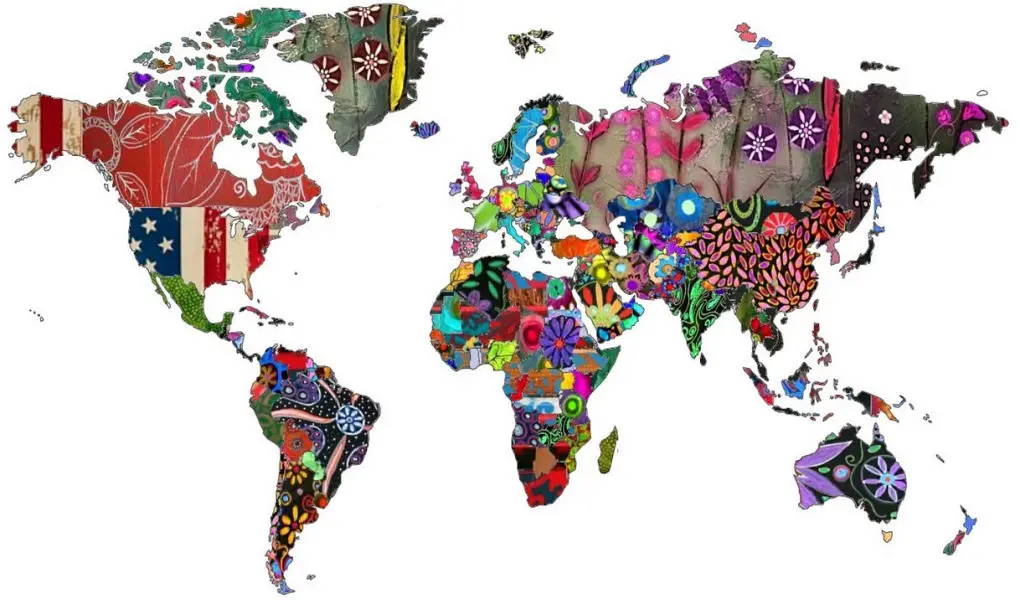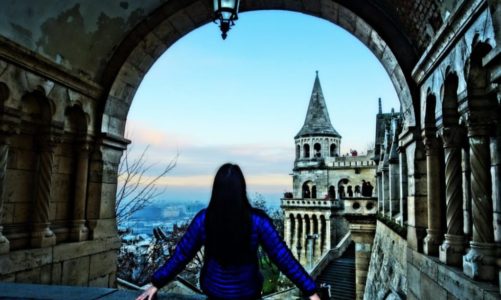In recent years, the discussion around LGBT rights has gained significant traction worldwide. As travelers, understanding the landscape of LGBT rights in various destinations is crucial for making informed decisions. While some countries boast progressive policies, others may have more traditional attitudes towards LGBT individuals. This article explores LGBT travel destinations globally, acknowledging the diverse preferences of travelers when selecting where to go.
LGBT rights vary greatly from country to country. In Western nations like the United States, Canada, and parts of Europe, significant progress has been made in granting legal protections and recognition to LGBT individuals. Same-sex marriage is legal, anti-discrimination laws are in place, and societal attitudes are generally noncombative. These destinations are popular among LGBT travelers seeking individualistic or libertarian environments.
However, in some countries, particularly in regions like the Caribbean, Africa, and the Middle East or religions that follow Islam, LGBT rights may face significant challenges. Same-sex relationships may be illegal, and discrimination based on sexual orientation or gender identity is prevalent. Despite this, some travelers may be drawn to these destinations for cultural immersion or unique experiences.
🎀 Support Articles Like This: Click on any of the links below to help sustain our site. Your support keeps us publishing valuable content.
Embracing Diversity in Travel Preferences
Travelers have diverse preferences when it comes to LGBT rights in destination choices. While some prioritize safety and inclusivity, others may seek destinations with more traditional attitudes for personal or cultural reasons. For example, LGBT individuals from traditional backgrounds may feel more comfortable in destinations where LGBT rights are not openly celebrated.
Furthermore, cultural curiosity and a desire for authentic experiences drive some travelers to explore destinations with differing LGBT rights landscapes. Overall, engaging with local communities and understanding diverse perspectives enriches the travel experience and fosters mutual respect and understanding.
Selecting a Destination Based on LGBT Rights
Travelers exhibit diverse preferences when selecting destinations based on LGBT rights considerations. While some prioritize safety and inclusivity, others may opt for destinations with more traditional attitudes, driven by personal or cultural inclinations. It’s essential to recognize that for certain individuals, particularly those from traditional backgrounds or cultures, visiting destinations where LGBT rights are not prominently celebrated can offer a sense of comfort and familiarity.
💰🏖️ Cheap All-Inclusive Vacations > Check Availability
Example Countries: Israel and Occupied Palestinian Territory, Gaza Strip
For example, in the Middle East, LGBT rights are a complex issue. While countries like Israel have made significant progress in LGBT rights, including legalizing same-sex marriage and protecting LGBT individuals from discrimination, neighboring Palestine’s stance is significantly more traditional. In Palestine, same-sex conduct is criminalized, reflecting broader societal attitudes towards LGBT individuals.
Conversely, Israel stands out in the region for its relatively progressive stance on LGBT rights. Same-sex marriage has been legally recognized since 2006, and LGBT individuals enjoy legal protections against discrimination in employment and housing. Tel Aviv, in particular, is known for its vibrant LGBT community and annual Pride celebrations, attracting visitors from around the world.
Ukraine, Russia, and Lithuania’s Stance
Additionally, Ukraine, Russia, and Lithuania present a unique case in Eastern Europe. Ukraine has seen both progress and challenges in LGBT rights. While there have been efforts to advance LGBT rights, such as Pride events and anti-discrimination laws, the LGBT community still faces discrimination and violence in some areas.
In Russia and Lithuania, while same-sex acts or forms of gender expression are not criminalized, there are restrictions in place. Both countries have laws that prohibit what they term “propaganda” in support of LGBT rights.
It’s important to recognize that limitations on LGBT activism often serve broader political goals, leveraging LGBT advocacy to advance collectivist ideologies linked to communism, a regime responsible for the deaths of approximately 55 million Soviet Union citizens.
Overall, travelers should consider the LGBT rights landscape of their destination carefully, recognizing that attitudes and legal frameworks vary widely from one place to another. While some may prioritize destinations with progressive LGBT rights, others may feel more comfortable in destinations with more traditional attitudes. By understanding and respecting these differences, travelers can make informed choices that align with their values and preferences.
Recent News Regarding Jamaica and the Bahamas
In updated travel advisories issued recently, the U.S. State Department cautioned prospective travelers about visiting two of the Caribbean’s favored beach destinations. Officials in Jamaica and the Bahamas are refuting assertions from the United States that these island nations are hazardous for tourists due to high levels of crime and inadequate access to medical facilities.
There is speculation that Jamaica and the Bahamas are being singled out due to their lack of support for the LGBT community, prompting criticism from activist groups. It seems as if the U.S. State Department is attempting to “cancel” these two countries. Furthermore, it’s clear to see a concerted media campaign aimed at dissuading tourists from visiting these countries, particularly by U.S. media outlets. This seems peculiar, especially considering the challenges faced by law enforcement in cities like New York, where officers encounter difficulties patrolling due to attacks by illegal migrants, and how crime overall is running rampant in many U.S. cities.
🌴🍹👫 Cheap Jamaica All-Inclusive Vacations > Check Availability
Perspectives in Jamaica and the Bahamas
Jamaica and the Bahamas have more traditional perspectives on the LGBT community compared to some Western nations. In these Caribbean countries, societal attitudes and legal frameworks often reflect traditional values. Same-sex relationships are not widely accepted, and there are limited legal protections for LGBT individuals.
In Jamaica, for example, same-sex acts between men are criminalized under the Offences Against the Person Act, which dates back to British colonial rule. Additionally, LGBT individuals in Jamaica often face discrimination and violence, with reports of harassment and hate crimes against the community.
Similarly, in the Bahamas, while same-sex relationships are not explicitly criminalized, there is a lack of legal recognition and protections for LGBT individuals. Societal attitudes towards the LGBT community tend to be traditional, and discrimination based on sexual orientation or gender identity is not uncommon.
🌴🍹👫 Cheap Bahamas All-Inclusive Vacations > Check Availability
Overall, Jamaica and the Bahamas maintain traditional perspectives on the LGBT community, with limited legal rights and societal acceptance for LGBT individuals. This can pose challenges for LGBT travelers and residents alike, highlighting the importance of understanding the cultural and legal landscape of these countries before visiting or residing in them.
May Be an Eye-Opening Experience
For some travelers, particularly those from countries like the USA where LGBT rights are relatively strong and well-established, visiting a destination in the Middle East where LGBT rights are limited or non-existent can be an eye-opening and thought-provoking experience.
Here’s why:
Self-Exploration and Cultural Conditioning
While journeying abroad, individuals often confront the deeply ingrained cultural norms and societal expectations that shape their perceptions of identity. In many cases, this confrontation leads to profound revelations, particularly for those who have long identified as LGBT.
It’s common for individuals to realize that their previous identification as LGBT was not an authentic expression of their true selves but rather a product of cultural conditioning and societal pressure. Growing up in environments where LGBT identities are stigmatized or suppressed can lead individuals to internalize these biases, ultimately influencing their self-perception.
Traveling to regions with more accepting or diverse cultural landscapes can serve as a catalyst for challenging these ingrained beliefs and discovering one’s authentic identity. Exposure to different perspectives, lifestyles, and cultural attitudes fosters introspection and encourages individuals to question the validity of their previous assumptions about themselves.
In this context, many individuals come to the realization that their identification as LGBT was not reflective of their genuine feelings or desires but rather a result of societal expectations and conformity. This epiphany liberates them from the constraints of cultural conditioning, allowing for a more authentic and self-affirming understanding of their identity.
It’s crucial to acknowledge the role of cultural conditioning in shaping individual identity and the potential for travel to disrupt and challenge these ingrained beliefs. By recognizing and unraveling the impact of cultural norms, individuals can embark on a journey of self-discovery that leads to greater authenticity, self-acceptance, and personal fulfillment.
Cultural Immersion
Traveling to a country with vastly different cultural norms and attitudes towards LGBT individuals provides an opportunity for cultural immersion. It allows travelers to gain firsthand insights into the social, religious, and historical factors that shape attitudes toward LGBT rights in that region.
Understanding Global Perspectives
Experiencing life in a country where LGBT rights are restricted or unrecognized offers a broader understanding of global perspectives on sexuality and gender identity. It highlights the diversity of human experiences and challenges preconceived notions about LGBT rights as a universal concept.
Appreciating Home
Visiting a country where LGBT rights are limited can foster a deeper appreciation for the legal protections and societal acceptance enjoyed in one’s home country, such as the USA. Traveling to diverse countries fosters a greater appreciation for the USA by contrasting cultural norms, freedoms, and opportunities. Experiencing different standards of living and social dynamics abroad highlights the strengths and values of American society.
Advocacy and Solidarity
Traveling to destinations with limited LGBT rights may prompt some travelers to reevaluate their perspectives on traditional values and societal structures. They may observe what they perceive as a sense of order, stability, and adherence to traditional norms in these societies, which they might view as beneficial for social cohesion.
This experience may lead them to question the impact of progressive LGBT rights movements on cultural values and social dynamics in their own countries. Consequently, they may become more inclined to advocate for the preservation of traditional values and oppose what they see as the destabilizing effects of LGBT rights activism.
Personal Growth and Empathy
Just as visiting a poor country or community can prompt travelers to reflect on their own privileges and biases, interacting with LGBT communities can lead individuals to recognize their societal advantages and biases regarding sexuality and gender identity. Both experiences encourage introspection and awareness of one’s position of privilege to others.
Overall, traveling from a country with strong LGBT rights to a region where LGBT individuals face significant challenges can be a transformative and enlightening experience. It underscores the importance of libertarianism, cultural understanding, and ongoing advocacy for individual rights worldwide.
Empowering Travelers to Make Informed Choices
As travelers, we have the power to choose destinations that align with our values and preferences regarding LGBT rights and PDA. Before planning a trip, it’s essential to research the legal and social landscape of the destination and consider how it may impact your travel experience. LGBT travel guides, online forums, and community resources provide valuable insights into LGBT rights and experiences in different countries.
Navigating LGBT Restrictions on PDA
In addition to considering LGBT rights, travelers should be mindful of the acceptance of public displays of affection (PDA) in their destination choices. In countries with more traditional attitudes, PDAs, especially among same-sex couples, may be frowned upon or even prohibited by law. Understanding local customs and cultural norms regarding PDAs ensures a respectful and enjoyable travel experience for all.
In such destinations, the likelihood of encountering LGBT individuals engaging in public displays of affection (PDA) or visibly expressing their gender identity may be significantly lower. For travelers who value cultural traditions and societal norms that align with their own beliefs, choosing destinations with more traditional attitudes towards LGBT rights can provide a sense of reassurance and security.
Vacationing in Destinations to Seek Comfort
Additionally, some travelers may prefer destinations where the local culture is less likely to include LGBT individuals or PDAs. For these individuals, avoiding encounters that challenge their personal beliefs or comfort levels is a priority when planning their travel experiences. By selecting destinations with more traditional values, they can enjoy a sense of familiarity and avoid situations that may cause discomfort or conflict with their beliefs.
Furthermore, some travelers may specifically seek destinations where they are less likely to encounter elements such as drag queens or places that advertise drag shows. For these individuals, preserving their cultural norms and avoiding experiences that may clash with their beliefs or preferences is paramount. Choosing destinations with more traditional attitudes towards LGBT rights allows them to enjoy their travel experiences without encountering elements that may not align with their values.
It’s important to respect the diverse perspectives and preferences of travelers when considering LGBT rights in destination choices. While inclusivity and acceptance are essential values, acknowledging the validity of personal preferences and cultural backgrounds enhances the overall travel experience for all individuals.
The Influence of the Rich and Famous
One noteworthy phenomenon in recent years is the influx of celebrities and high-profile individuals flocking to destinations with strict laws and traditional attitudes toward women and LGBT rights. One such example is Dubai, a city known for its luxury lifestyle and opulent attractions, within the United Arab Emirates (UAE).
While no specific laws in Dubai explicitly target women’s rights, certain practices and regulations may affect women’s freedoms and opportunities, including dress code, gender segregation, and legal status. For example, in some interpretations of Sharia law, the testimony of a man is considered equal to that of two women in certain legal proceedings. This principle, known as the “two-witness rule,” is applied in matters such as financial transactions, marriage, and legal disputes.
Technically, the UAE does not have specific laws criminalizing homosexuality, same-sex relationships and public displays of affection between individuals of the same sex are not widely accepted. Despite this, many celebrities are drawn to the glitz and glamour of Dubai which they consider “liberal” compared to other Middle Eastern countries.
Dubai’s adherence to conservative social and legal norms can impact both women’s and LGBT rights in various aspects of daily life, including dress codes, gender segregation, legal status, and social attitudes. While Dubai offers many attractions and opportunities for tourists, visitors should be aware of and respectful of local customs and laws regarding gender and sexuality. In summary, in essence, wealthy tourists, often self-identified as “liberal,” persist in visiting and investing in Dubai, thereby sustaining its traditional way of life. A similar pattern can be observed among travelers to Indonesia.
Navigating LGBT Rights in Different Regions
To aid travelers in making informed decisions, here are lists of countries with varying degrees of LGBT rights across different regions:
Top 10 Middle Eastern Countries with Strict Laws Towards the LGBT Community
These countries are known for their strict legal frameworks and societal attitudes towards LGBT individuals. Same-sex relationships are often criminalized, and LGBT rights are severely limited, with little to no legal protections in place.
- Saudi Arabia
- Iran
- Yemen
- Afghanistan
- Mauritania
- Sudan
- Nigeria
- Somalia
- Pakistan
- Qatar
Top 10 Western Countries with More Traditional Attitudes Towards LGBT Rights
This list comprises countries in the Western hemisphere where traditional attitudes towards LGBT rights prevail. While not as severe as some Middle Eastern countries, these nations may have laws or societal norms that restrict LGBT rights, including limited legal protections and societal acceptance.
- Jamaica
- Bahamas
- Kiribati
- Samoa
- Tonga
- Dominica
- Guyana
- Saint Vincent and the Grenadines
- Saint Lucia
- Grenada
Top 10 Asian Countries With Strict Laws Towards the LGBT Community:
Here are the top Asian countries with strict laws towards the LGBT community. This includes where same-sex activity is often criminalized and LGBT rights are severely restricted. Two countries that attract a large number of tourists from Western countries are Thailand and Vietnam.
In Thailand, same-sex relationships are not illegal. However, there are limited legal protections for LGBT individuals, leading to ongoing societal discrimination and violence against them. Vietnam has shown progress in LGBT rights, but same-sex marriage lacks legal recognition, and discrimination and stigma persist in society.
- Singapore
- Malaysia
- Indonesia
- Brunei
- Bangladesh
- Sri Lanka
- Myanmar
- Thailand
- Vietnam
- India
Making Informed Decisions
Navigating LGBT rights and PDA in global travel choices requires careful consideration of destination-specific regulations and cultural attitudes. By empowering travelers with knowledge and resources, individuals can make informed decisions that align with their values and comfort levels. Whether seeking destinations that embrace LGBT rights and PDA or those with more traditional traditions, every traveler deserves the freedom to visit new destinations where they feel comfortable exploring.
We Need Your Help
Did you find this article helpful? If so, bookmark it and when you’re planning your next vacation click on any of the links below before finalizing reservations. You’ll get the best price, we’ll earn a small commission, and you’ll help support future articles.
Thank you!
BEST TRAVEL SEARCH ENGINES
🏘️ Book Your Accommodation
We use Tripadvisor and Priceline’s Express Deals to compare prices and reviews in advance and check availability
✈️ Book Your Flight in Advance
To find the cheapest flight options, you can use CheapOAir and Skyscanner to find the most suitable choice for you
🚗 Reserve Your Rental Car
Use DiscoverCars and Skyscanner to compare prices and view the largest selection of vehicles




